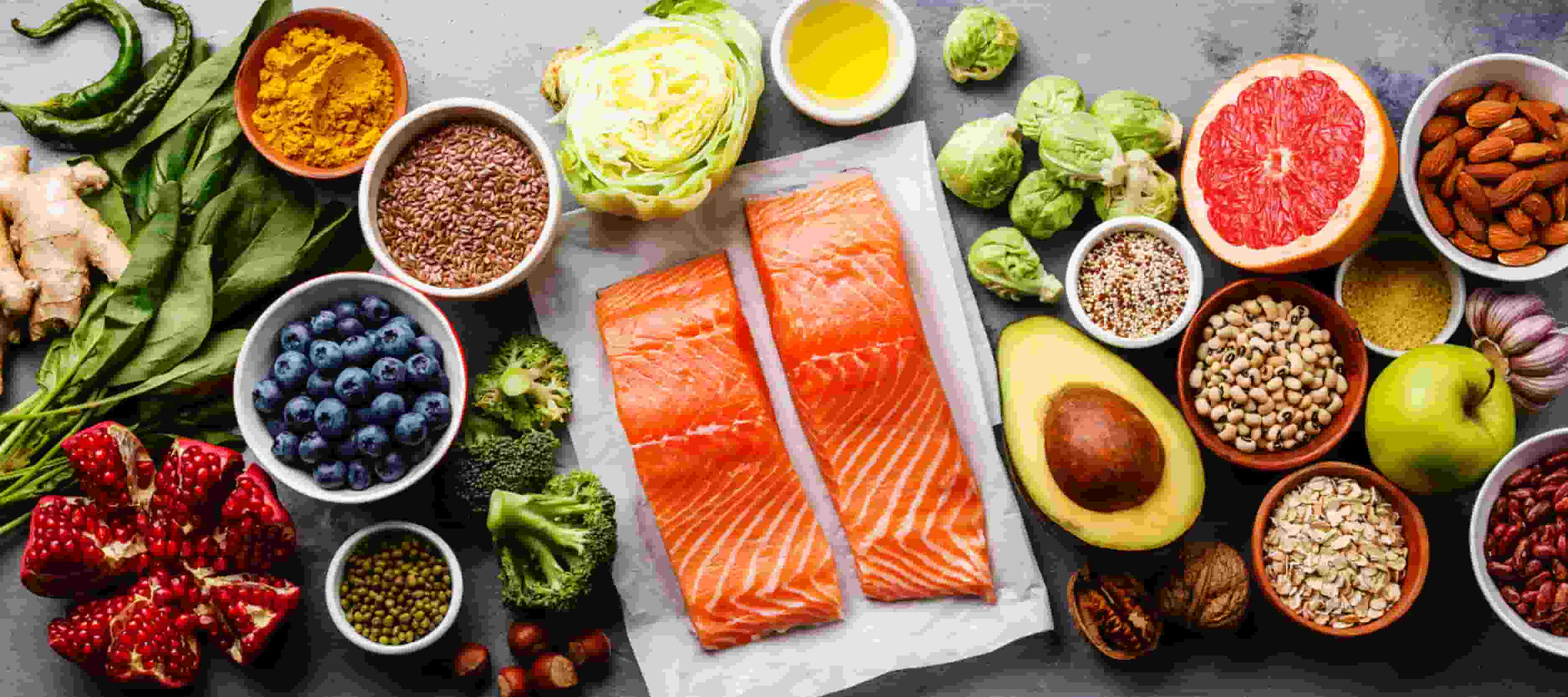From our inflammatory responses to pathogens, to our clever retorts to insults, we humans have developed all sorts of ways to defend ourselves against threats, both real and perceived. Give us a kick to the shin or a gash to the hand, and we’ll send in white blood cells to get to work on healing.
Tag us in a nasty tweet and we’ll either put the phone down and take a deep breath to get a handle on our adrenaline, or we’ll clap back with a defensive reply. No matter the response, the motivation is the same: to protect ourselves.
In the case of acute injury or illness, inflammation is a protective response to a negative trigger. Our bodies react to the issue, whether it’s a wound, bacteria, or a virus, with an effective inflammation response. While the healing process can be uncomfortable with some unpleasant symptoms, such as fever or pain, ideally they’re short-lived.¹
But there’s a second type of inflammatory response — the chronic kind — which doesn’t do the same important job.
Quite the opposite, really.
Chronic inflammation happens when the body responds to an illness or injury but the inflammation-promoting cells stay too long at the site; this causes symptoms like ongoing pain, elevated blood pressure, swelling, stiffness and more.
This type of inflammation can be a symptom of a medical condition, like rheumatoid arthritis or Crohn’s disease.²
What causes inflammation?
Some causes of chronic inflammation can’t be avoided.
“You cannot prevent a genetic predisposition to some autoimmune or inflammatory diseases or conditions, like degenerative arthritis, lupus, type 1 diabetes and many more,” says Dr. Stefano Guandalini, MD, Professor Emeritus at the University of Chicago, and one of the world’s leading experts on celiac disease, an autoimmune condition that causes inflammation.
Other non-preventable causes of chronic inflammation include systemic lupus erythematosus, multiple sclerosis and psoriasis.
However, some causes of chronic inflammation can be attributed to lifestyle choices, says Dr. Guandalini. Smoking, excessive stress, obesity and higher levels of low-density lipoprotein (LDL) cholesterol³ can all spike inflammation. The good news is that chronic inflammation caused by habits can be partially prevented, improved (and sometimes even reversed!) by making healthier choices.
How is chronic inflammation diagnosed?
“There is no specific diagnosis of inflammation,” says Dr. Guandalini, “as a number of diseases fall into this category, each one with their own diagnostic array.” However, screening for high-sensitivity C-reactive protein (hs-CRP) is a convenient way to assess for inflammation..
“High-sensitivity C-reactive protein levels tell us that inflammation is happening,” says Dr. Guandalini, but they don’t tell us why or where in the body it’s happening.
If an inflammatory condition is suspected, your doctor may order blood tests to measure erythrocyte sedimentation rate (ESR) or serum protein electrophoresis (SPE) levels.
On their own, these tests can’t diagnose specific conditions, but they can be used to rule out certain conditions or to offer clues on which more disease-specific tests to run next.⁴⁵
The best natural treatments for inflammation
Regardless of the cause of inflammation, paying attention to your diet and getting regular exercise are the two most recommended natural treatments for getting chronic inflammation under control, says Dr. Guandalini.
Anti-inflammatory diet
Multiple studies confirm that Mediterranean diets — the plant, nuts, fish and olive oil-rich cuisines traditional to the Mediterranean coast — are associated with lower markers of inflammation.⁶
But as beneficial as it may be, Mediterranean fare isn’t your only option. Any healthy diet that is rich in anti-inflammatory foods, and that emphasizes fruits and vegetables while limiting red meats, animal fats, processed and fried foods and refined sugars, is likely to reduce inflammation.
Examples of foods with anti-inflammatory effects include:⁷
- Tomatoes
- Olive oil
- Green leafy vegetables (e.g., spinach, kale, collards)
- Nuts (e.g., almonds, walnuts)
- Fatty fish (e.g., salmon, mackerel, tuna, sardines)
- Fresh fruit (e.g., strawberries, blueberries, cherries, oranges)
Exercise
The best kind of exercise for reducing inflammation is the kind that you do! Seriously, if you can, just get moving! Both resistance training⁸ and aerobic exercise⁹ are associated with a reduction in inflammatory markers, so incorporating both is your best bet, but doing anything to exercise your body is a step in the right direction.
Case in point: one study published in the journal Brain, Behavior, and Immunity asked participants to walk on a treadmill for 20 minutes a day at a moderate pace suited to their current fitness levels.
Researchers found that even this modest amount of exercise reduced the production of inflammatory cells by five percent.¹⁰¹¹¹²
Supplements and herbs for managing inflammation
Although adopting an anti-inflammatory diet and getting regular physical activity are the top tools for decreasing inflammation, there are some natural herbs and supplements that may help as well.
Curcumin
Curcumin, a natural compound with well-established anti-inflammatory properties, is the active ingredient in the spice turmeric.¹³
“Several studies have shown curcumin to be effective in reducing inflammation symptoms in arthritis, as well as in improving psychological status and markers of inflammation in patients with adult-onset diabetes,” says Dr. Guandalini. Adding turmeric to foods is one way to ingest more curcumin, but the compound is also available in curcumin supplements, which are more potent than turmeric.¹⁴
Ginger
“Ginger has many bioactive phenolic compounds and is considered an antioxidant and anti-inflammatory agent,” says Dr. Guandalini. “It has been used to prevent and treat gingivitis, osteoarthritis, nausea and muscle pain in athletes.” Studies around using ginger as an anti-inflammatory are positive overall.¹⁵¹⁶
Resveratrol
Resveratrol is a natural flavonoid found in peanuts, blueberries and red grape skin. (If you’ve heard that consuming red wine in moderation is good for your heart, you can chalk it up to the potential benefits of resveratrol.)¹⁷ “Resveratrol has been shown to be beneficial in patients with adult-onset diabetes and coronary heart disease,” says Dr. Guandalini. To determine your optimal dose, speak with a doctor or dietician, as the science on dosing is still evolving.¹⁸
Omega-3 fatty acids
Like certain vitamins, omega-3 fatty acids are essential nutrients we can’t produce in our bodies but that we need to ingest — through food or supplements — for optimal health. They are found especially in fatty fish such as salmon, mackerel and sardines, as well as in many nuts, seeds, and plant oils.¹⁹
“Omega-3 fatty acids protect from bone loss, boost the immune system, may lower cardiovascular risk, and have a beneficial effect on colonic inflammation and colorectal cancer,” says Dr. Guandalini. Eating foods rich in omega-3 fatty acids is not only a safe and easy way to get them into your body, but Dr. Guandalini also notes that it's also superior to taking supplements. But if you prefer to take your omega-3s in capsule form, speak with your doctor or dietician as research on optimal dosing is ongoing.²⁰
Green tea
Green tea is a promising anti-inflammatory food that has been shown to be helpful against a variety of conditions, including cancer, obesity, diabetes and cardiovascular and neurodegenerative diseases.²¹ “However, the evidence so far comes mostly from studies in animal or cellular systems,” says Dr. Guandalini. More human trials are needed to determine just how effective it may be at reducing inflammation.
Doctor’s orders for reducing inflammation
If lifestyle choices are the culprit behind your ongoing symptoms, adjusting your habits is the best thing you can do; supplements may help, but without making diet and exercise changes, you’re unlikely to see the improvements you’re after. “All types of inflammation will benefit from better food choices and more movement throughout the day — not just inflammation caused by poor lifestyle habits, but disease-based inflammation may improve as well,” says Dr. Guandalini.
Eating healthy food, exercising your body, quitting smoking and limiting alcohol will reap many positive rewards, says the good doctor — including reduced inflammation.
Summary
Chronic inflammation can be caused by genetic factors, but it’s also highly impacted by lifestyle choices. While there’s no specific way to diagnose inflammation, hs-CRP testing may be helpful, as well as testing ESR and SPE levels.
Once inflammation is confirmed, there are a number of natural ways to treat the issue, including diet and exercise changes as well as potentially introducing herbs and supplements known to have anti-inflammatory properties. Talk with your doctor for a treatment plan that’s right for you.














.svg)




